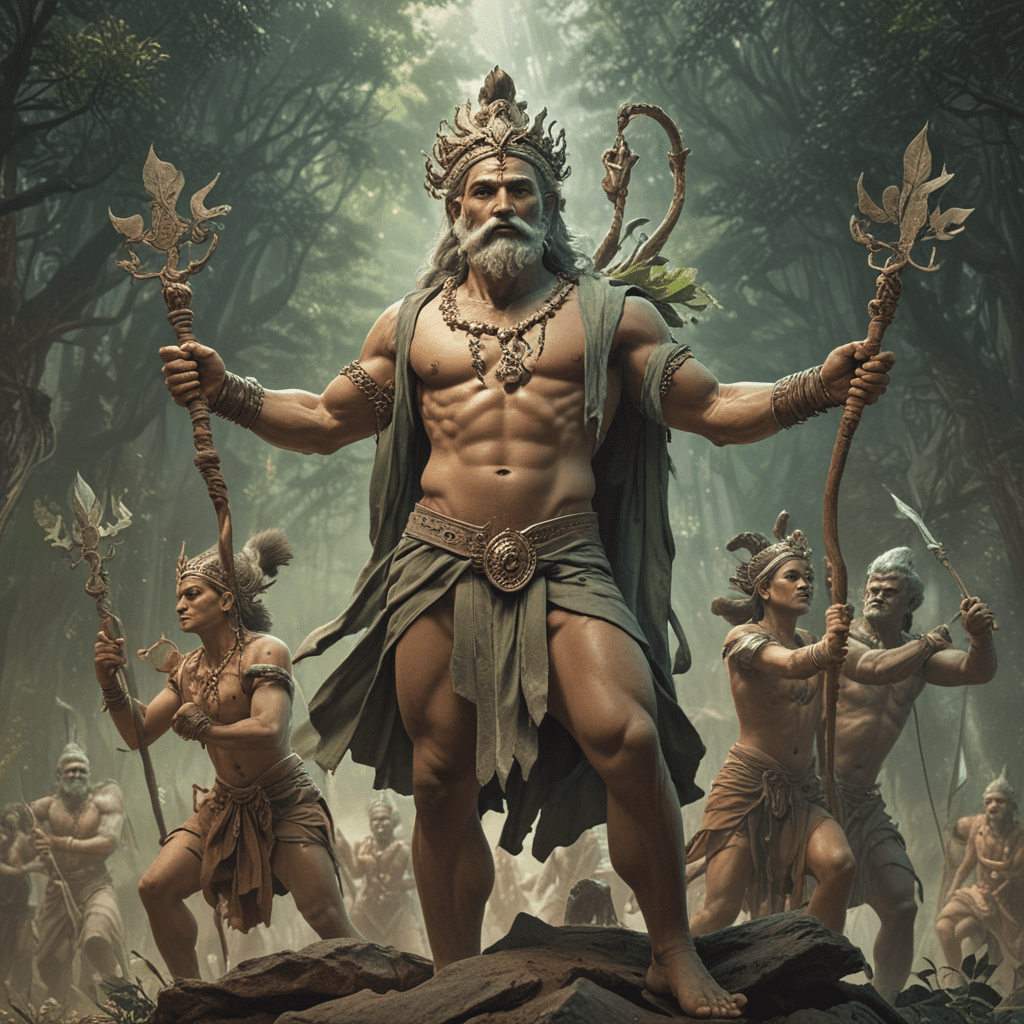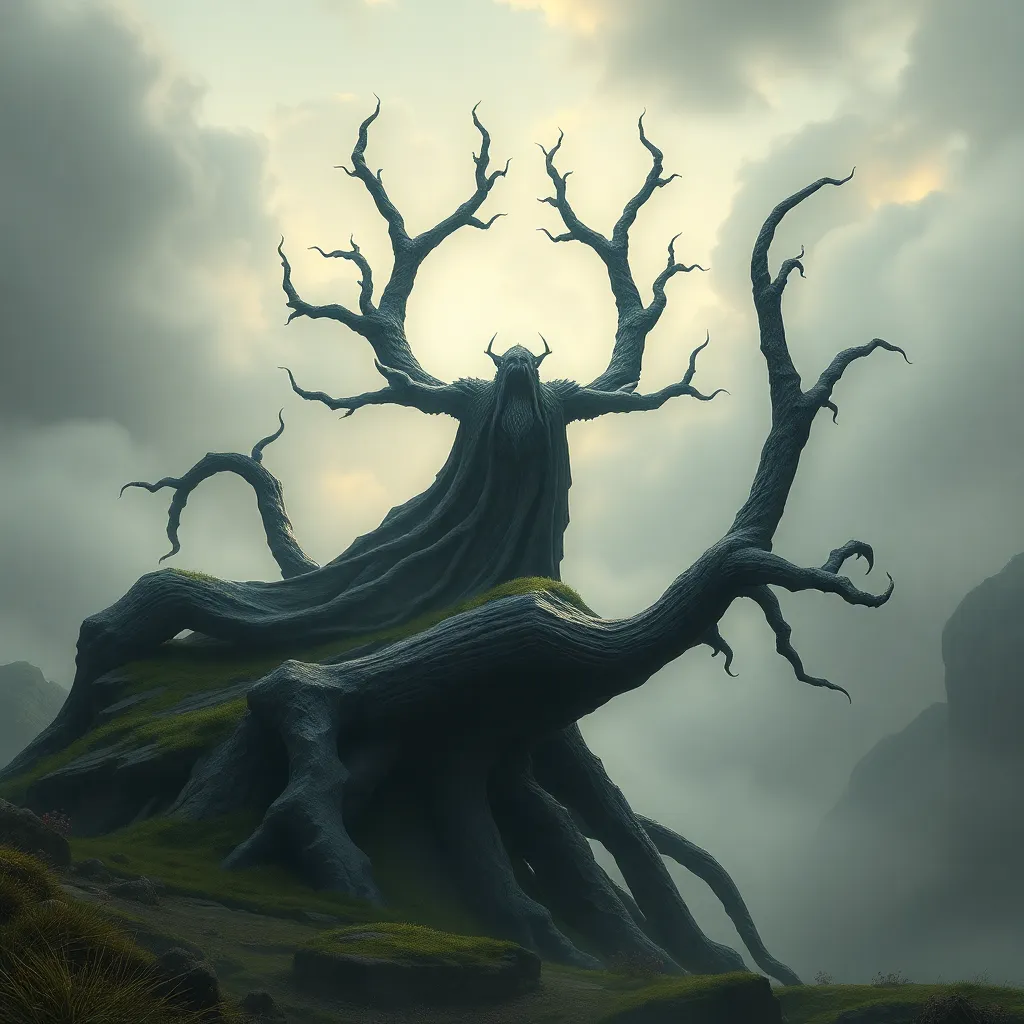The Myth of Sage Kashyapa: The Father of Devas, Asuras, and Humans
Introduction: The Myth and its Significance
The myth of Sage Kashyapa holds a prominent position in Hindu cosmology, explaining the origin of the universe and its inhabitants. The tale revolves around the concept of creation and the divine entities responsible for bringing forth the various beings that populate the cosmos.
Sage Kashyapa: The Father of All Creations
Sage Kashyapa is revered as the progenitor of all living beings, including gods, demons, and humans. He was the son of the creator god, Brahma, and was believed to possess immense powers. The tale suggests that Kashyapa played a pivotal role in the creation of the universe and the beings that dwell within it.
Creation of the Devas (Celestial Beings)
Kashyapa is credited with the creation of the Devas, the celestial beings who inhabit the heavens. With his divine powers, he brought forth a multitude of Devas, including the likes of Indra, the king of the Devas, and Agni, the god of fire. The Devas are known for their benevolence and their role in maintaining order and harmony in the universe.
Creation of the Asuras (Demons)
Sage Kashyapa is also said to have created the Asuras, the demonic beings who often oppose the Devas. The Asuras are known for their malevolence and their pursuit of power. The myth suggests that Kashyapa created the Asuras as a counterbalance to the Devas, ensuring that the delicate balance of the universe is maintained.
Creation of Humans (Mortals)
Lastly, Kashyapa is believed to have created humans, the mortal beings who inhabit the earth. With his divine powers, he brought forth a vast multitude of humans, each with their own unique characteristics and destinies. Humans are said to be a blend of the divine and the mundane, possessing both strengths and weaknesses.
VI. The Significance of Kashyapa’s Role in Hindu Cosmology
Sage Kashyapa's role in Hindu cosmology is pivotal. He is considered the progenitor and father of all living beings, encompassing Devas, Asuras, and humans. Through his divine powers, he brought forth a vast multitude of beings, each with its own unique purpose and place within the universe. Kashyapa's role as the creator and sustainer of all life establishes him as a central figure in the Hindu understanding of the cosmos.
VII. The Symbolic Interpretation of the Myth
Beyond its literal meaning, the myth of Sage Kashyapa holds profound symbolic significance. The creation of Devas, Asuras, and humans can be seen as a representation of the inherent duality and balance within the universe. The Devas embody the divine and benevolent aspects, while the Asuras represent the demonic and malevolent forces. Humans, as a blend of both, possess both strengths and weaknesses, constantly striving to maintain equilibrium between these opposing forces. The myth thus serves as a reminder of the intricate interplay between the divine, the demonic, and the mortal realms.
VIII. Cultural and Literary Significance of the Tale
The myth of Sage Kashyapa has left an indelible mark on Indian culture and literature. His story has been depicted in numerous ancient texts, including the Vedas, Puranas, and epics like the Ramayana and Mahabharata. Kashyapa's legacy extends beyond religious scriptures, inspiring countless works of art, literature, and philosophy. His image is often portrayed in sculptures, paintings, and other artistic representations, symbolizing the enduring power and significance of creation.
IX. Comparison to Other Creation Myths in World Religions
The myth of Sage Kashyapa shares similarities with creation myths found in other world religions. In the Judeo-Christian tradition, God creates the universe and all its inhabitants, including humans. In ancient Egyptian mythology, the god Atum is said to have given birth to the other gods and goddesses, who in turn created the world. These similarities highlight the universal human need to explain the origins of existence and to find meaning and purpose within the vastness of the cosmos.
X. The Legacy of Sage Kashyapa in Indian Mythology and Culture
Sage Kashyapa remains a revered figure in Indian mythology and culture. His role as the creator of all beings has earned him a place among the most important and influential divine entities. Kashyapa's teachings and wisdom continue to inspire and guide countless devotees, reminding them of the inherent interconnectedness of all life and the importance of striving for balance and harmony in a world fraught with duality. His legacy endures as a testament to the enduring power and significance of myth in shaping human understanding of the universe.
FAQ
Q: Who is Sage Kashyapa?
A: Sage Kashyapa is a revered figure in Hindu mythology, considered the progenitor and father of all beings, including gods, demons, and humans.
Q: What is the significance of Kashyapa's role in Hindu cosmology?
A: Kashyapa's role is pivotal, as he is believed to have created all living beings, establishing him as a central figure in the Hindu understanding of the cosmos.
Q: Does the myth of Sage Kashyapa have a symbolic interpretation?
A: Yes, the myth holds profound symbolic significance, representing the inherent duality and balance within the universe through the creation of Devas, Asuras, and humans.
Q: How has the myth of Kashyapa influenced Indian culture and literature?
A: The myth has left an indelible mark on Indian culture, inspiring numerous ancient texts, works of art, literature, and philosophy, showcasing his enduring power and significance.
Q: Are there any similarities between the myth of Kashyapa and other creation myths?
A: Yes, the myth shares similarities with creation myths found in other world religions, highlighting the universal human need to explain the origins of existence and find meaning within the cosmos.



